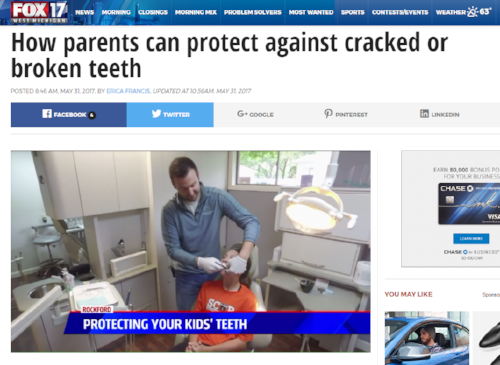What is the Right Way to Floss?
Flossing removes plaque and food particles in places where a toothbrush cannot easily reach — under the gum line and between your teeth. Because plaque build-up can lead to tooth decay and gum disease, Dr. Jensen recommends flossing every day!
Try the following techniques:
- Start with about 18 inches, wind most of the floss around each middle finger and leave an inch or two of floss to work with
- Hold the floss tight between your thumbs and index fingers and slide it gently up-and-down between your teeth
- Gently curve the floss around the base of each tooth, making sure you go beneath the gum line. Never snap or force the floss, as this may cut or bruise your gums!
- Use clean sections of floss as you move from tooth to tooth
- To remove the floss, use the same back-and-forth motion to bring the floss up and away from the teeth
What type of floss to use:
Any floss is better than no floss! But there really are only two types of floss:
- Nylon floss
- Single filament floss
Nylon floss is available waxed and un-waxed, and comes a variety of flavors. Because this type of floss is composed of many strands of nylon, it may sometimes tear or shred, especially between teeth with tight contact points.
Single filament floss is a little more expensive, but slides easily between teeth, even those with tight spaces and is virtually shred-resistant.
Both are great choices, and now-a-days there are many different products, flavors and flossing tools available in your local grocery or pharmacy.
Keep floss handy, visible, and ready to use in order to make using it on a regular basis harder to pass up.
Dr. Jensen likes to keep some in his car, in the office and at home. You never know when you’ll get something stuck between your teeth – and there’s nothing more annoying that not being able to get it out!
We look forward to seeing you at your next appointment, and we’ll send you home with a new toothbrush AND some floss. Give us a call at 616-866-7720 to schedule your next cleaning!






